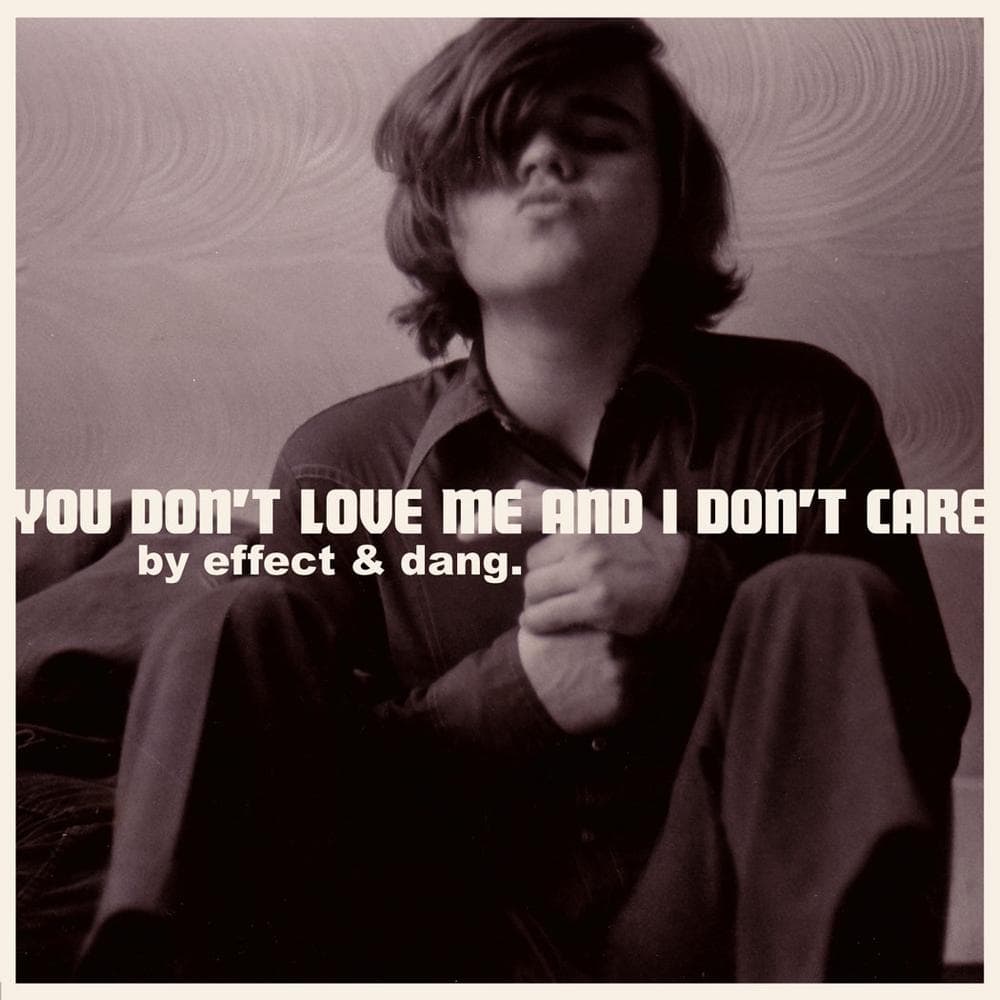Advertisement
Effect Raps: ‘You Don't Love Me And I Don't Care’

Inside the mind of the archetypal modern rapper is a comfy place to be. Within their psychology, critics and supporters are constantly being reshuffled between roles as either “haters” or “family” in a fluid exchange than ensures the artist's ego is never left unguarded. Detractors are just jealous and real fans are unwavering, until the day their creeping jealousy sends them back to the other side. It's a painfully self-conscious device, although admittedly effective in the most self-serving way, that artists like Kanye West and Rick Ross have made a staple of their success.
Then there's Effect. He titles his new album: “You Don't Love Me and I Don't Care."
And why should he? The 30-year-old Lowell born-and-raised rapper has never postured himself as anything other than who he is: hip-hop's everyman, a slick lyricist ingrained with ‘90s rap ethics and a gift for spinning something surprising and urgent out of the seemingly mundane.
“I don't want people to read the title and think of when they were messing with that kid at the school ground and his response is 'I don't care,'” Effect, doing his best whiny kid pantomime, says of his new album, set for release on May 21. “It's more the fact that I'm putting my own money into this, so if you don't like my records I really don't care. If you don't pay attention at my show, I don't care. I just loved the title and can't imagine naming the album anything else now.”
His latest album follows up from 2011's “Simply Dope,” a fairly straightforward exercise in showcasing Effect's strengths: a rapid-fire delivery, a healthy sense of self-deprecation (check “Margot Kidder,” his tragi-comic attempt to woo the actress, or at least the 1970s version) and excellent chemistry with his producer Dang, who returns to lace all 13 tracks on the new record.
If that album was colored by its upbeat, inviting revelry in rap nostalgia, “You Don't Love Me” finds Effect carrying a slightly heavier burden. After kicking down the door with the double-barrel blast of “Whatupwhatupwhatup” and “Rap Terminators” (featuring a couple electric verses from Esoteric and Celph Titled alongside Effect), “My Life” downshifts into more sober territory, with Effect sifting through the emotions of a turbulent year that included the death of his grandmother and a stinging breakup.
In “Falling Apart,” he raps, “Had a bad year make that clear, when I drank away the summer and chased it with tears/then pen a release for the whole world to hear."
For those familiar with his prior work, particularly as one-half of the deliberately raunchy over-the-top rap duo Los Wunder Twins del Rap (with fellow Lowell guy D-Tension), it seems unfamiliar at first.
“If my first album sounded like every single song was funny, then if say I had a rough year and wanted to record an album that was catchy, but also to reflect what I'm going through, people would take it differently,” he explains. “I don't want to be known as a conscious rapper or a funny rapper. I want to reserve the right to talk about whatever I want to talk about, whenever, but at the same time respect the listener.
Not that he's trying to please anyone or cares if you love him or not, but there's a balance and sincerity to the album that makes it easy to enjoy. Alongside the aforementioned opening cuts, “Puerto Rican Rum” and “When Dang Rocks the SP,” songs with the high-minded topics of boozing and making sick beats respectively, burst with personality and an infectious swing. And when crafting conceptual tracks like “She Likes Me” and the posse cut “Headphones Lie,” the trauma of an obsessive potential paramour or the fight for the soul of modern rap are stabilized by Effect's relatable persona.
Of course, not caring if people love your music or not is a luxury that an underground artist like Effect can enjoy with some sense of chagrin: there's no pressure to sell records or please label executives, making a self-funded album like this a true passion project rather than a full-time job.
Then again, let's not be haters.
Martín Caballero is a Somerville-based arts writer for the Boston Globe and editor of JTTS.com. When he's not ducking angry rappers, you can find him polishing his script for the upcoming blockbuster film "White Sushi Chef."
This article was originally published on May 16, 2013.